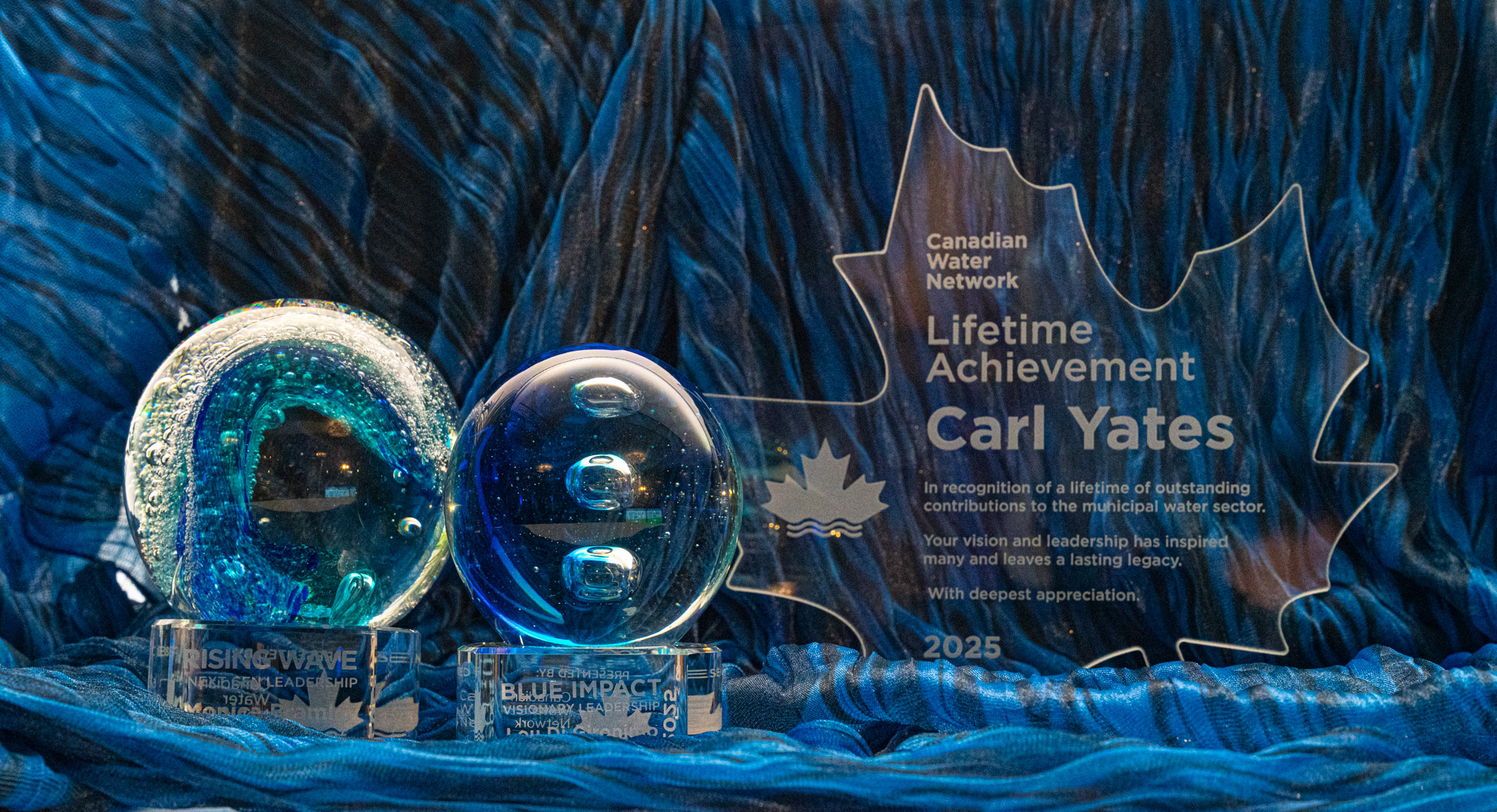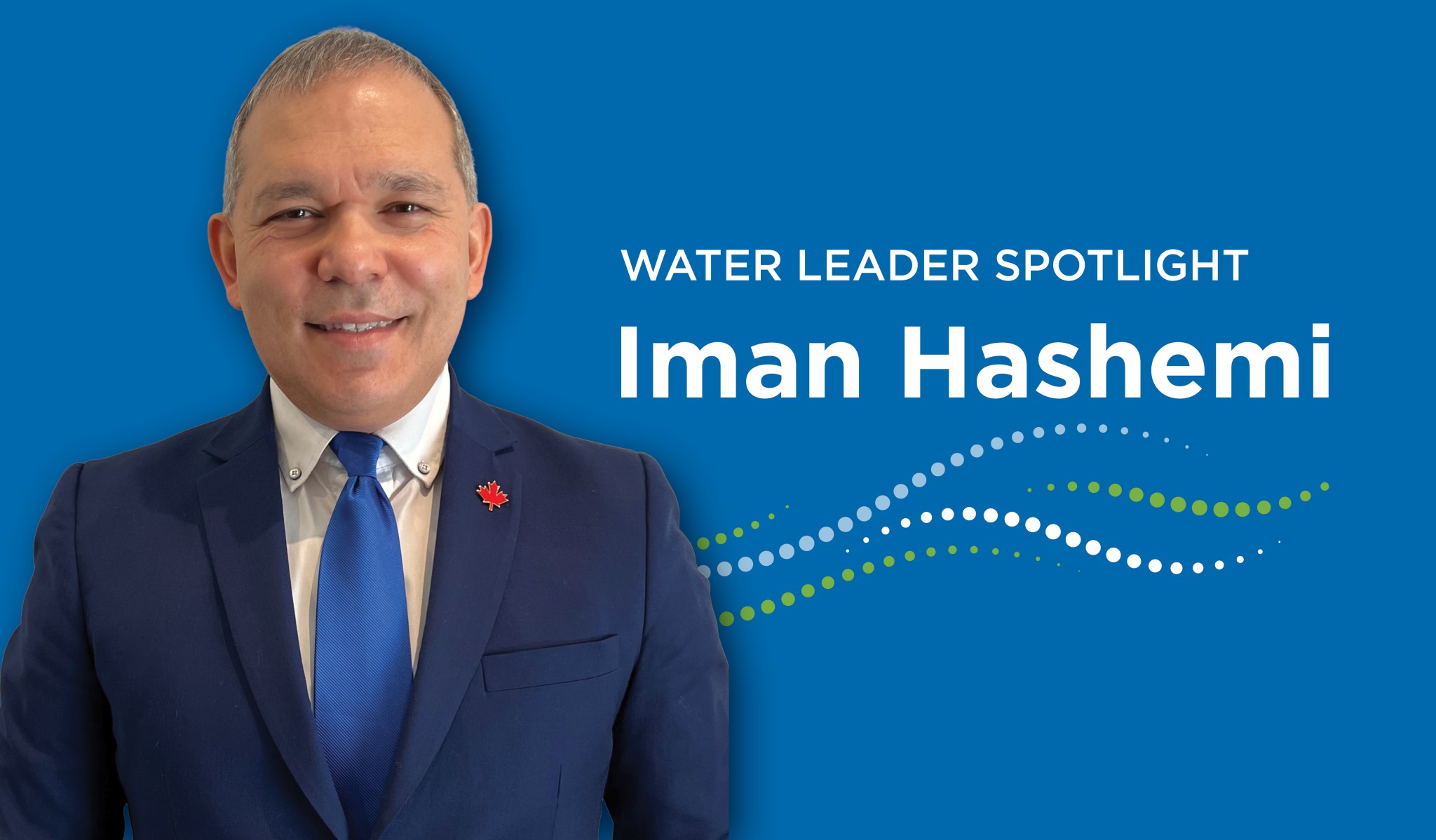Beyond target setting: Accelerating net-zero actions in municipal water management
Canadian Water Network (2022-ongoing)

Challenge
In June of 2021, the Government of Canada committed to net-zero emissions by 2050. To support this commitment, the government:
- Launched a Net-Zero Advisory Body to provide advice that supports the nation’s endeavour to achieve net-zero.
- Published Bill C-12, the Net-Zero Accountability Act, that respects transparency and accountability throughout the five-year milestones in net-zero greenhouse gas (GHG) emissions efforts.
- Renewed Canada’s climate action plan — Healthy Environment, Healthy Economy — by creating 64 federal policies, programs, and investments that aimed to build a more resilient economy.
- Created an $8 billion Net-Zero Accelerator Fund that will support projects aimed at reducing Canada’s GHGs.
In November 2021, almost 200 countries at COP26 committed to the Glasgow Climate Pact that contained four main goals. Water plays a central role in achieving all of them alongside “near-global net-zero” mitigation efforts. Around the same time, Canadian Water Network (CWN) convened water utility leaders across Canada to share their diverse plans and experiences in the drive to net-zero. Two resounding sentiments emerged from this meeting:
- The need for a collaborative and coordinated effort across all sectors to transform aspirations into tangible action.
- The need to clarify and update the national dialogue around net-zero water.
As the COVID-19 pandemic continues to challenge municipalities and divert priorities across Canada and the world, 2021 serves as a stark reminder of the impact of climate change on social, environmental, and economic well-being and resilience. The drought, wildfires, floods, record-breaking cold snaps, and severe tropical storms and hurricanes that swept across Canada in 2021 threatened critical infrastructure, including water, wastewater, and stormwater systems. They also caused widespread damage that displaced thousands of families and wildlife and endangered local ecosystems. Overcoming these climate-induced disasters and generating long-term resiliency in the face of stresses on interconnected systems will require an ambitious, collective, and integrated effort to reduce global GHG emissions and transition to more sustainable pathways.
Municipalities and utilities, as anchor institutions, are faced with identifying what role the water sector plays in this effort. While different approaches to achieving net-zero emissions exist across the country, one thing is clear: a transition to net-zero first requires defining what it means to be net-zero then developing a pathway to get there. Although the definition may differ across sectors or even within them, targets can only be set and achieved when everyone is on the same page.
Project
In March 2022, CWN launched a peer-to-peer Strategic Sharing Group for members of the Municipal Water Consortium’s leadership group. The Strategic Sharing Group provides opportunities to share knowledge on how the Canadian water sector can take an ambitious, leadership role in bringing Canada closer to a net-zero future. This is so that local communities can get to the future they want through water. The group will also explore actions, strategies and activities that can help utilities attain net-zero targets that align with the local community in the context of climate change and environmental uncertainties, risk and resilience, financial constraints, and collaborative governance.
The group’s objectives are to:
- Exchange knowledge with other utilities about current work on advancing net-zero frameworks, strategies, actions, initiatives and targets.
- Clarify issues and identify shared challenges and roadblocks in advancing net-zero initiatives in water, wastewater, and stormwater utilities.
Members of the net zero water Strategic Sharing Group will bring a broad range of expertise and experience to the discussion. A variety of discussion topics will be addressed, including carbon reduction targets and defining net zero, actions and approaches, challenges, barriers and best practices, and building the business case for investing in net zero.
Outputs
Strategic Sharing Groups provide unique and meaningful peer-to-peer sharing opportunities on emerging strategic issues. CWN facilitates an environment for confidential dialogue among participating senior municipal/utility managers and, where appropriate, invites leading experts to share their knowledge. The group directs the discussion with support from CWN staff who frame the issue, facilitate discussions, invite relevant guest experts, incorporate insights from the international community, and create meeting captures. CWN staff also use critical takeaways to shape future Municipal Water Consortium initiatives that support the municipal community.
Water and wastewater utility leaders across Canada will benefit from the net zero water Strategic Sharing Group because they will have the ability to drive discussion based on emerging needs within their respective communities. Utility leaders subsequently learn from one another and use the knowledge gained to help inform the development or advancement of actions, strategies and activities to reduce greenhouse gas emissions and attain net-zero targets in alignment with their local community targets and programs.
A summary of insights derived from the Strategic Sharing Group’s discussion on accelerating net-zero actions in municipal water management, including utility challenges and management approaches, will be provided at the conclusion of this group.
In the meantime, we have included a preliminary scan of Canadian municipalities pursuing GHG emission reduction goals below. The use of biogas/energy recovery at WWTPs is highlighted.
This snapshot (October 2021) shows the communities that have embraced greenhouse gas reduction targets. In addition, CWN is highlighting the actions that water utilities are taking for energy recovery through biogas capture. Other actions that utilities can take include electrical co-generation, co-locating renewable energies such as solar, renewable natural gas production, and in-line pipe turbines as examples. As we learn more about the actions taken by Canadian utilities, we will share them here.
Canadian Cities who have joined the Race2Zero: unfccc.int/climate-action/race-to-zero/who-s-in-race-to-zero#eq-5 [Accessed November 8, 2021]
Municipalities who have active Biogas Projects: biogasworld.com/projects/[Accessed November 8, 2021]












